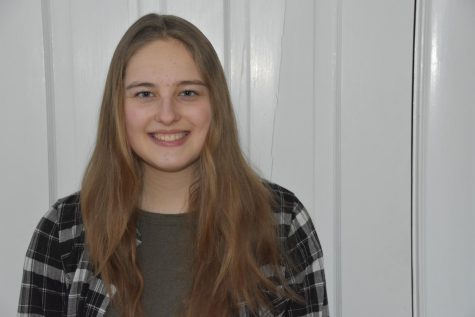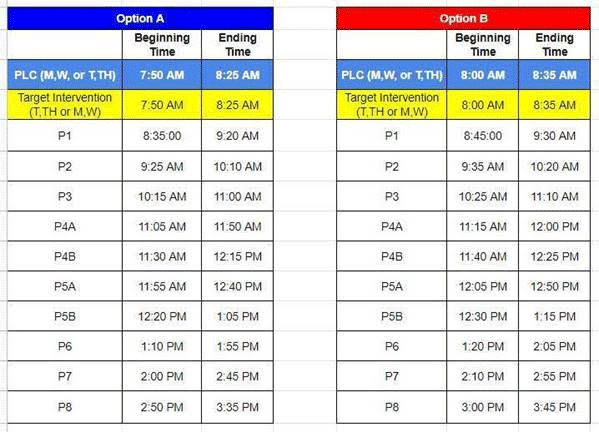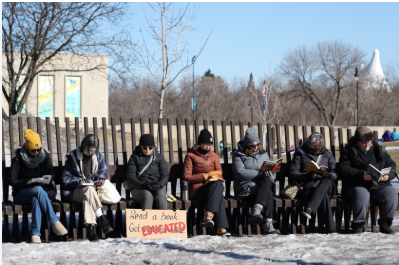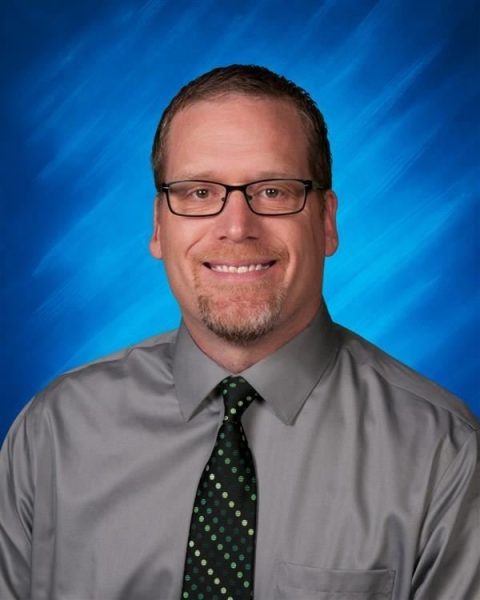Possible future Changes in North’s Daily Schedule
North High School is looking into creating some major changes in the daily school schedule. Principal Andrew Dahlen asked, “Is there a way to create a schedule where the student is open when the teacher is open?” This is what the whole administration is trying to create.
“I like the discussion and I like the idea where there’s a time period where you can have intervention during the day,” said David Volk.
Multiple ideas regarding how this should be done are being discussed. They’re trying to decide if they should have the intervention time in the morning, afternoon, or at the end of the school day. They are also discussing if this intervention time should be created by adding time to the school day or by taking time away from classes.
Volk said, “No matter what we do, there is going to be good and bad with it. If there were a perfect system, we would all be doing it…We’re trying to figure out what it would look like to serve the most number of students in the best way possible.”
One major discussion involves where the intervention period should be placed. If it is in the morning, the students will still be sleepy. If it’s after school, students in sports will often miss it. Yet, if it’s in the afternoon, North High will have little control over the students who do not need the intervention. The details regarding this schedule are still extremely open\; however, Volk said, “I think a lot of people said that maybe the middle is the smartest.”
Currently, that’s where many students are leaning towards also. A poll showed that 58.8% of students would prefer the intervention time to be in the afternoon.
One student said, “The afternoon will provide a good break in the middle of the day for the students, and if they need it they can get extra help from their teacher(s).”
Another student said, “If we are given an open period at the beginning or end of our day, then the majority of students won’t show up to this period, because they will want to go home early or want to sleep in. If it’s in the middle of the day, this will force kids to show up and want to actually get stuff done.”
However, not all students prefer the same time. One student evaluated the benefits of all the suggested times by saying, “Morning would provide a time for teacher prep, for students to ask for help, and a later start to the day for those who don’t need the help. A midday period would be nice to have a longer lunch. After school would be nice because, after a class is done, a student can ask about the material and other students can leave.”
Another student commented, “There are pros and cons to each time of the day, but I feel it would be most beneficial to have it either in the morning or after school. Either way it would be a shorter day if someone didn’t need help.”
One idea that is not being considered is a seven period day, as rumors may have prompted some to believe.
Dahlen said, “We believe in an eight period day. Fifteen percent of our kids either have 7.5 or 8 credits. These are credits the kids could not take\; therefore, we are not in favor of endorsing that idea.”
This discussion and possible schedule change is a huge step for North High School. After all, the schedule has not changed much since before 1991. The greatest change has been the Wednesday late start time in order to provide teachers with PLC (Professional Learning Communities).
Volk said, “We all get ingrained in tradition, but sometimes tradition is not in our best interest.”
The current system does have some drawbacks. Dahlen said, “Students with 7.5 or 8 credits currently don’t have time to visit with the teacher.” This can make it extremely challenging for students who need to visit with the teacher because they are struggling, missed class, or need to get in a music lesson. Furthermore, the current system ILC, designed to help students who are struggling in a particular subject, is not always beneficial, because the student does not always get to work with their teacher. Creating a teacher intervention time will help alleviate these problems.
This idea comes with much support.
Rachel Consdorf said, “Yes. Absolutely. I’m a huge proponent of [having a built in open for everyone]… It would allow me to work with my own students more frequently. To tutor them, make up labs, tests, things like that.”
Furthermore, 67.2% of students would like an intervention period. One student said, “This would be very helpful. In many classes, if I’m behind due to missing class and I don’t have the same open periods as the teacher, it is very difficult to learn what I missed. It would reduce a massive amount of stress if there was a period that I could see any teacher to get help.”
However, a teacher intervention period does have its drawbacks. “People would just go home during the open and would most likely not take advantage of the opportunity.” One student warned, while another said, “This would be a good idea, except since everyone will have the same open, it will be crowded all the time like how it was at finals.”
Consdorf said, “I did a calculation. Right now we have 245 minutes of instructional time per week, if we shortened it down to 47 every day, we would have 235 minutes of instructional time. We would lose 10 minutes of instructional time, which over 40 weeks is 400 minutes. Yes, there is some loss of instructional time, but I think that is negligible compared to the amount of time you can work with students who need help.”
Dahlen sent out an email to staff on February 10 where he explained where the administration is currently at regarding the new school schedule. He wrote, “We discussed the options of having the intervention afterschool, but realized that we would have more staff gone for afterschool activities. We also discussed the intervention time to be during the school day, but recognized the challenge of supervising students.” The administration believes morning would be best. Dahlen then sent out two different bell schedule options. One started at 7:50 and ended at 3:35, while the other started at 8:00 and ended at 3:45. Dahen concluded his email by writing, “We are continuing the discussion at our next secondary principals meeting (Thursday, February 20). If you have any comments/suggestions/recommendations stop in or send me an email.”
Your donation will support the student journalists of Fargo North High School. Your contribution will allow us to resume physical printing of our newspaper for students at Fargo North!

Laura Simmons is a writer for Fargo North High's Scroll. She takes Orchestra and Latin as well as Journalism for her electives. She is also active in multiple...



